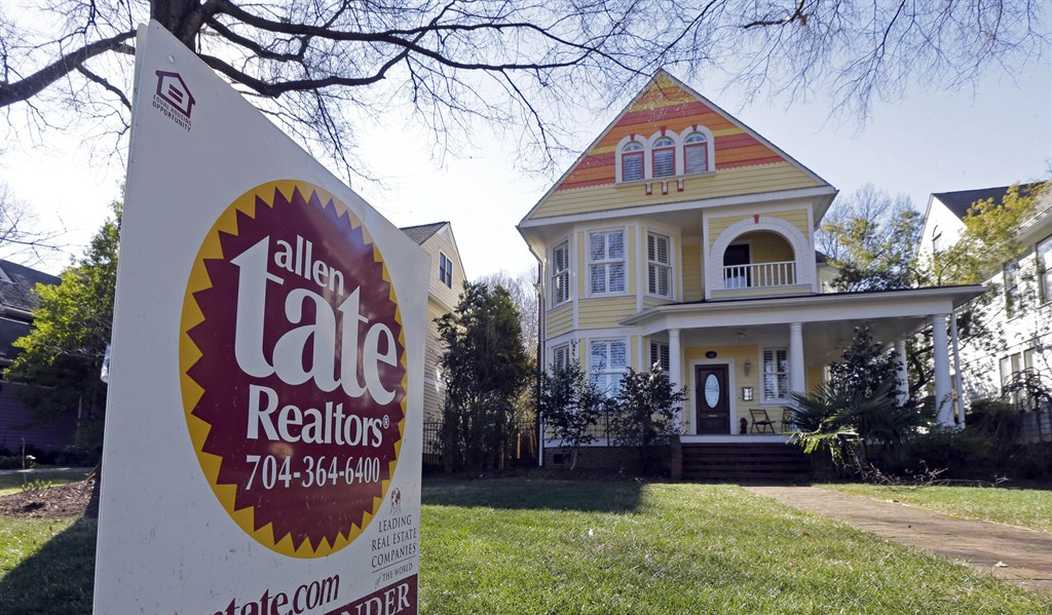But they're patently inadequate. Greed -- or the desire for monetary gain -- has always been with us and always will be. And no one has convincingly linked financial deregulation to the crisis. Dodd-Frank, enacted to increase regulation, confers too-big-to-fail status on very large financial institutions, which incentivizes unduly risky behavior and penalizes smaller competitors.
The real problem was housing finance, argues my American Enterprise Institute colleague Peter Wallison in his new book "Hidden in Plain Sight: What Really Caused the World's Worst Financial Crisis and Why It Could Happen Again." Without changes in housing finance policy, he says, there would have been no financial crisis in 2008.
Government policies encouraged the granting of mortgages to non-creditworthy homebuyers, and government-sponsored enterprises Fannie Mae and Freddie Mac funneled securities laced with high-risk mortgages into major financial institutions. When house prices suddenly and unexpectedly dropped in 2007, these mortgage-backed securities became unsellable and the financial crisis quickly followed.
Wallison traces the policy mistake back to 1992, when Congress passed a law requiring the GSE's to purchase a certain percentage of its mortgages granted to low- and moderate-income homebuyers--30 percent originally, later adjusted up to 56 percent by the Department of Housing and Urban Development.
Recommended
Previously the GSE's bought only mortgages in which the buyer made 10 to 20 percent down payments. That was revised downward to 3 percent and even zero. Such subprime mortgages proliferated until in 2008 when they accounted for more than half of U.S. mortgages, 76 percent of which were on the books of the GSE's or government agencies such as the FHA.
This was in line with the policy priorities of the Clinton and Bush administrations. They hailed the increase of homeownership from the 64 percent that prevailed from the mid-1960s up eventually, and temporarily, to 69 percent. They emphasized the importance of increasing homeownership by blacks and Hispanics who did not qualify as creditworthy under traditional credit standards, which were treated as superstitions.
The result was a house price bubble of unprecedented magnitude. Low-down payment mortgages inflated housing prices because buyers could afford a larger house with the same down payment. Above-average households, though not the intended beneficiaries of lowered mortgage standards, took advantage of them by converting inflated housing values into cash by refinancing their mortgages.
The problem metastasized into large financial institutions because of imperfect information and perverse government regulations. Fannie and Freddie classified as subprime only those mortgages they bought through traditional subprime lenders -- an action for which their officers were later sued by the Securities and Exchange Commission.
The three rating agencies licensed by the SEC paid by the sellers, rather than the buyers, of securities -- a classic case of misaligned incentives -- gave mortgage-backed securities AAA ratings, which encouraged big banks to buy them. Similarly, the Basel II international banking standards rated mortgage-backed securities as ultra-safe investments.
When housing prices fell, the market in mortgage-backed securities tanked: No one would pay anything for them. Financial institutions that borrowed to buy them had to raise equity to account for the losses. Wallison argues that the government response made things worse: By rescuing Bear Stearns in March 2008, regulators led other firms to believe they would be rescued too -- but Lehman Brothers was allowed to fail six months later, and panic followed.
That panic would not have occurred, Wallison argues, had not the government sparked the creation of defective securities and had not government regulations masked their defects. Private firms, after all, do not buy assets that they believe will become worthless.
Could it happen again? Wallison points out that government regulators are once again reducing the credit standards for mortgage seekers. The argument, as in the 1990s and 2000s, is that traditional standards are misleading and unduly prevent low-income and minority households from buying homes.
Fannie and Freddie are now purchasing the large majority of mortgages and announced last month they would buy mortgages with only 3 percent down payments. The qualified mortgage standards laid down by HUD and other regulators in October allowed for mortgages with zero down payments.
That sounds like a recipe for another housing bubble -- and for mass foreclosures, which hurt the policies' intended beneficiaries -- and perhaps for another financial crisis as well.

























Join the conversation as a VIP Member